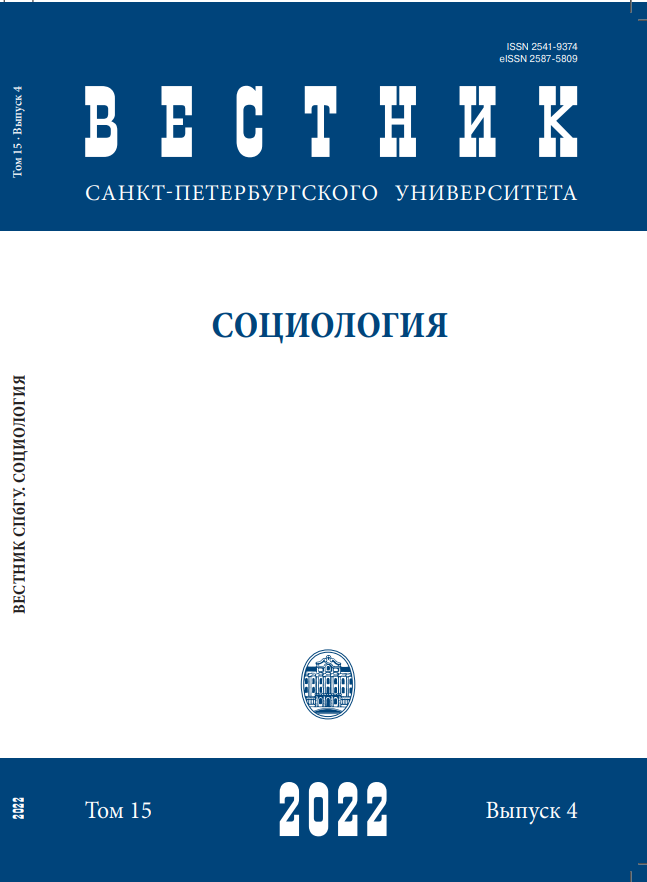Trust in the entrepreneurial environment of St Petersburg: The empirical study
DOI:
https://doi.org/10.21638//spbu12.2022.404Abstract
Trust in the business environment is usually seen as the trust of entrepreneurs to each other or trust within the firm as the trust of managers to their subordinates. The importance of such trust for the successful functioning of the economy and business is often emphasized. This article presents another aspect: it is the trust of entrepreneurs as a socio-professional group to other people (generalized trust), their trust in a narrow circle - family members and acquaintances (particularized trust); trust in social institutions (institutional trust). The characteristics of trust of entrepreneurs are compared with other socio-professional groups (such as workers, specialists with higher education in the field of science and culture, civil servants). Entrepreneurs have the highest level of trust, both generalized and particularized, among all socio-professional groups, but the level of trust in the state is the lowest for them. A rationalized attitude towards trust, involvement in horizontal (non-hierarchical) social relations, an increased level of risk, and the need for trust to reduce transaction and social costs distinguish entrepreneurs from other socio-professional groups and form their specific (local) culture of trust. The article also reveals the features of entrepreneurial trust in the field of digital technologies that are actively developing today (trust in social networks; trust in online commerce; trust in mobile applications of banks, etc.). Our study is based on the results of two surveys conducted in St Petersburg - a telephone survey of city of St Petersburg, N = 1032 (2020); Internet survey, N = 505, residents of the city and region (2021); in-depth interviews with entrepreneurs (10) (2020-2021).
Keywords:
entrepreneurial trust, generalized trust, institutional trust, comparative sociology of trust, culture of trust, digital trust
Downloads
References
Downloads
Published
How to Cite
Issue
Section
License
Articles of "Vestnik of Saint Petersburg University. Sociology" are open access distributed under the terms of the License Agreement with Saint Petersburg State University, which permits to the authors unrestricted distribution and self-archiving free of charge.




